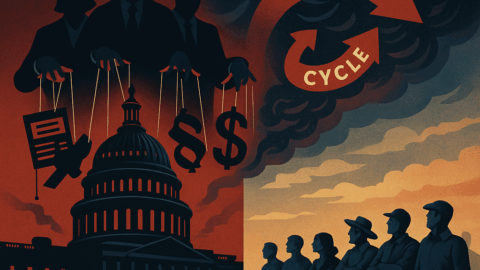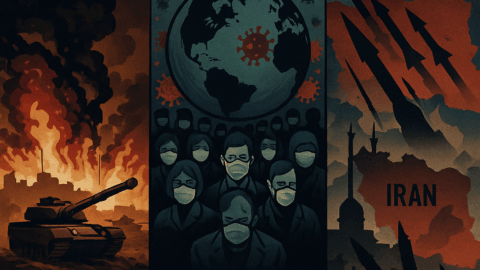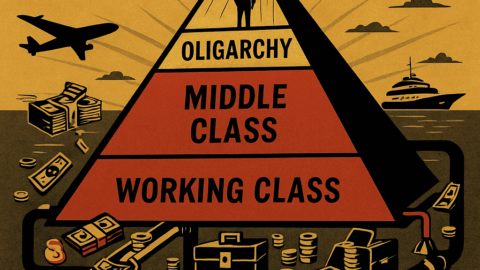The “Camel and the Tent” analogy is a parable that illustrates how small, seemingly harmless encroachments can lead to larger, more significant intrusions over time. Here’s how the analogy typically goes:
The Story:
A Bedouin was resting in his tent on a cold desert night when his camel, seeking warmth, asked if he could put just his nose inside the tent. The Bedouin, wanting to be kind to his camel, agreed, thinking that allowing the camel to warm his nose was a small, harmless gesture.
However, after a while, the camel asked if he could also put his head inside, since his nose was already in, and it would make him more comfortable. The Bedouin, again wanting to be generous, allowed it. But the camel didn’t stop there. Gradually, he continued to ask for more and more of his body to be allowed inside the tent, piece by piece, until finally, the entire camel was inside the tent. At that point, there was no room left for the Bedouin, who was eventually pushed out of his own tent.
The Lesson:
The camel and the tent analogy is often used to warn against the dangers of allowing small intrusions or compromises that, over time, can lead to a complete loss of control or a significant erosion of one’s position. It illustrates how initial, seemingly minor concessions can set a precedent for further demands, leading to larger, unintended consequences.
Applications of the Analogy:
- In Government and Politics:
- Erosion of Rights: The analogy can be used to describe how governments might start with small regulations or restrictions that seem reasonable at first. Over time, these small measures can accumulate, leading to significant erosion of individual freedoms.
- Expansion of Power: It also illustrates how government power can expand incrementally, often starting with a minor increase in authority that is justified by a specific need. Once this power is granted, it can be difficult to roll back, and over time, the government may assume more control than was originally intended.
- In Business and Negotiations:
- Slippery Slope in Agreements: In negotiations or business, this analogy might be used to caution against agreeing to small demands that could set a precedent for further, more significant demands. It serves as a warning to be mindful of where small concessions might lead.
- In Personal Boundaries:
- Protecting Personal Space: On a personal level, the camel and the tent analogy can serve as a reminder to protect one’s boundaries. Allowing small invasions of personal space or time can lead to larger intrusions that may eventually disrupt one’s life or well-being.
The “Camel and the Tent” analogy is a powerful reminder of how important it is to be cautious about allowing small encroachments, whether in personal matters, business, or government. It teaches that even minor concessions, if not carefully considered, can lead to significant and often unintended consequences, ultimately resulting in a loss of control or autonomy.
“The natural progress of things is for liberty to yield and government to gain ground.” — Thomas Jefferson
Thomas Jefferson’s observation, “The natural progress of things is for liberty to yield and government to gain ground,” reflects a concern that government, by its nature, tends to expand its power over time, often at the expense of individual liberty. This dynamic can occur in several ways:
1. Expansion of Government Power:
Increased Regulation and Legislation:
- More Laws, Less Freedom: As governments enact more laws and regulations, they often restrict individual freedoms in the name of public safety, order, or welfare. While some regulation is necessary, excessive or overly broad legislation can limit personal autonomy and freedom of choice.
- Bureaucratic Growth: The expansion of government agencies and bureaucracies often leads to increased control over various aspects of citizens’ lives. Bureaucracies, once established, tend to grow, accumulating more power and influence over time, often creating more rules and restrictions.
National Security and Emergency Powers:
- Security vs. Liberty: In times of crisis, such as war, terrorism, or pandemics, governments often assume extraordinary powers to ensure national security or public safety. While these measures might be justified in the short term, they can lead to long-term erosions of civil liberties, as emergency powers sometimes become permanent.
- Surveillance: Advances in technology have enabled governments to increase surveillance on their citizens, often justified by the need to combat crime or terrorism. However, this can infringe on privacy and other civil liberties, leading to a more controlled and monitored society.
Taxation and Economic Control:
- Economic Regulation: As governments impose higher taxes or more stringent economic controls, they can limit economic freedoms. When the state controls or heavily regulates key industries or resources, it can stifle individual enterprise and reduce economic liberty.
- Redistribution of Wealth: Extensive welfare programs or redistribution policies, while often designed to promote social equity, can also expand government influence over the economy, potentially reducing the financial independence of individuals and businesses.
2. Erosion of Individual Liberties:
Centralization of Power:
- Shift from Local to Central Control: As power becomes centralized in a national or federal government, local autonomy can diminish. Decisions that were once made at the local level, closer to the people affected by them, are increasingly made by distant, centralized authorities, which can reduce the individual’s influence over government decisions.
- Judicial and Executive Overreach: When the judiciary or executive branches of government extend their power beyond traditional limits, they can override or weaken legislative checks and balances. This overreach can lead to the erosion of constitutional protections of liberty.
Erosion of Constitutional Safeguards:
- Amendments and Interpretations: Over time, governments might reinterpret or amend constitutional provisions in ways that expand their powers. Judicial decisions can sometimes reinterpret foundational legal principles, leading to a gradual erosion of individual rights and freedoms.
- Precedent and Legal Norms: The establishment of legal precedents that favor state power over individual rights can gradually erode liberties. Once a government action is upheld by courts or accepted by the public, it can become a permanent feature of the legal landscape.
3. Public Compliance and Support:
Public Demand for Government Intervention:
- Crisis and Fear: During times of crisis or fear, the public may demand stronger government action, sometimes at the expense of liberty. For example, in the aftermath of terrorist attacks, there may be broad public support for measures that increase government surveillance or restrict certain freedoms in the name of security.
- Welfare and Dependence: As people become more dependent on government programs and welfare, they may be more willing to trade certain freedoms for the security and benefits provided by the state. This dependence can lead to a gradual acceptance of increased government control.
Propaganda and Media Influence:
- Shaping Public Opinion: Governments can use propaganda, media, and educational systems to shape public opinion, making the expansion of government power seem necessary or desirable. When the public is convinced that certain freedoms are dangerous or unnecessary, they may be more willing to surrender them.
- Normalization of Control: Over time, as government control becomes more pervasive, what was once seen as an infringement on liberty can become normalized. People may not even recognize the loss of freedom as they adapt to new laws and regulations.
Jefferson’s warning about the natural tendency for liberty to yield to government power is a cautionary reminder that freedom must be vigilantly protected. Government naturally seeks to expand its influence and control, often through the mechanisms of legislation, regulation, emergency powers, and the centralization of authority.
Meanwhile, individual liberties can erode through the public’s acceptance of these changes, often driven by fear, crisis, or dependence on government services.
To preserve liberty, it is essential for citizens to remain informed, engaged, and skeptical of any government actions that could infringe on their rights. A healthy democracy requires a balance where government power is limited, transparent, and accountable, ensuring that the freedoms of the people are protected from gradual encroachment.







